Croatian Graduate Perspective: The View from Matija from Zagreb
October 4, 2021 - With many young people emigrating from Croatia, what keeps those who decided to stay here (at least for now)? In the new TCN series called Croatian Graduate Perspective, we investigate recent graduates' attitudes about jobs and life opportunities in Croatia. Matija from Zagreb is our latest interviewee. This is his story.
1) First of all, please introduce yourself. What are you studying/what did you study? Do you have a job currently?
My name is Matija Šalat. I have a fresh Master's degree in political science from the Faculty of Political Science at the University of Zagreb. I'm currently employed by a multinational company in their business operations department.
2) What is it like being a student/recent graduate in Croatia during the pandemic?
I can say that the pandemic "hit" me much less than it did the rest of the student population. In 2020, I only had a couple of courses left in my second semester, which we did online, and this academic year I was writing my Master's thesis. The online form of teaching has its advantages, such as saving the time I would spend going to the Faculty. Still, the quality of teaching and the monitoring of the teaching, especially after all the efforts of the professors, isn't at the same level as ''live'' education is. Also, I think all young people share this opinion, that it was hardest for us to be separated from the people closest to us and dear friends in moments when human contact was more necessary than ever, but also dangerous as you could contract the virus.

Matija Šalat © Matija Šalat / private archive
3) What are your experiences searching for a job in your profession in Croatia?
The labour market in the City of Zagreb is becoming more and more active every year, and the job offer is huge. Since we're a country where the last decade has been marked by economic hardships and the significant departures of young people abroad, the demand for a quality workforce is one of the major problems facing employers. There are actually three main areas of employment within my profession, namely; public administration, private consulting companies and the civil sector, as well as academic careers. As I recently got my Master’s degree, looking for a job in my own profession is my current priority. The Faculty of Political Science provides an extremely broad social education, and my interest is to find a place where I can further develop all of that, both in professional and personal terms.

Matija on one of his jobs during studying © Matija Šalat / private archive
4) What do you think of the Croatian Government's efforts to provide opportunities for graduates?
I don't believe that the Croatian Government should be obliged to directly provide every young person with a job opportunity, but it is important to provide the private sector with a quality basis for creating business opportunities. And I don't mean fulfilling the wishes of the liberal part of the political spectrum on the abolition of taxes and regulations, but on setting the clear and consistent rules of the game. For example, I think a much bigger problem than the tax burden is that someone just won’t pay you for the work you’ve done, and the judiciary won’t protect you, or maybe the inspection will punish you drastically for a petty offense. We like to point out that the judiciary is the cancer-wound of our society, manifested precisely in legal uncertainty and inequality. So, there's not only one thing that needs to be done to make things better, but a drastic change in behaviour and governance is needed.
5) Many young people your age decide to emigrate from Croatia to find a better job opportunity and/or living standard. What do you think about that?
I absolutely understand every person who decides to build their life somewhere else, but at the same time, a large number of those who leave could help change our society for the better. The problem of the outflow of social capital should also be looked at because the vast majority of highly educated emigrants have had their education paid for by us as a community in order to contribute to its development. That said, I certainly support anyone who decides to take this difficult step, and I hope that rest of us will build a society that will be attractive to them again.
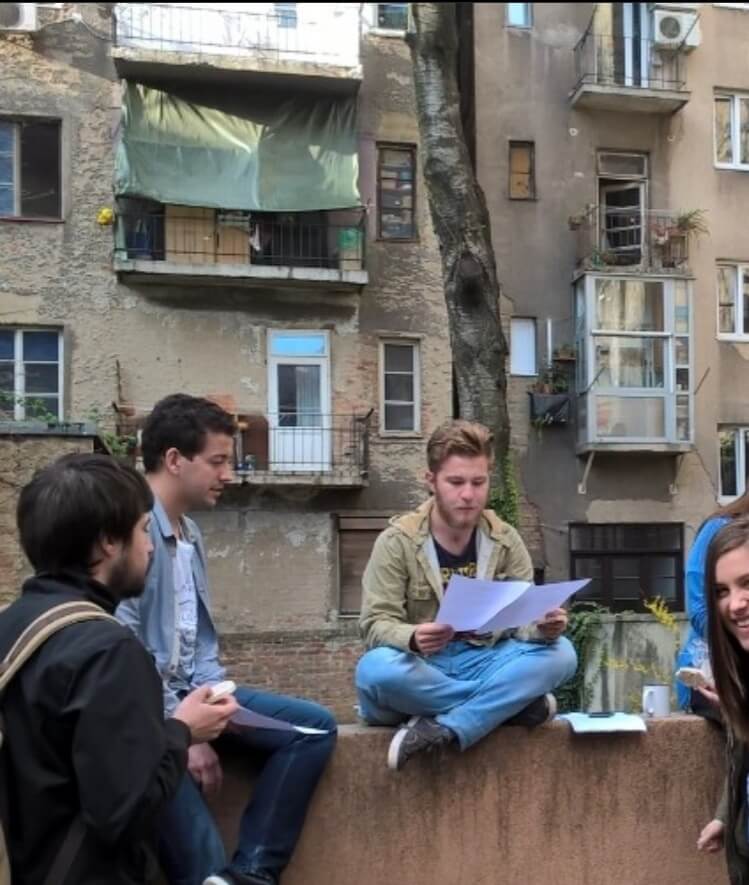
With friends at the Faculty © Matija Šalat / private archive
6) In your opinion, what would encourage young people to stay in Croatia?
The main problem of our society is the criminally bad governance of our country. A significant number of young people who left did it not only for economic reasons but also because it turned out that this country values political connections and acquaintances more than it cares about expertise and abilities. As all parts of the state apparatus are marked by inefficiency and corruption, the "little man" can only experience injustice. It's this sense of inferiority that the state produces, precisely this difference between a privileged part of the population who solves their problems with one call, versus people who have to solve the same problem over a prolonged period of time (and the question is whether they will be even able to solve it at all), that makes people go on a mission to find a more normal society. I have to admit that I was shocked when I heard from a friend that in Denmark, in order to receiving a student scholarship having part-time employment is a must and it isn't taxable. In our country, for example, until a few years ago, scholarship income was included in the non-taxable yearly limit of 15,000 HRK, which demotivated recipients in finding a job for fear of exceeding that limit.
7) Have you ever considered the option of leaving Croatia?
So far, I haven't even thought about leaving Croatia. Many of my acquaintances and friends went on to build their lives in other European Union member states, and I'm sure that they didn't regret that decision. Croatia is my home, and I'm bound by a great love for our country and optimism that things will change for the better.
8) As a recent graduate, what's your impression of the education system in Croatia? What do you think is good about it and what could be better?
The education system, in general, is extremely sluggish and resists any change that tries to improve it. It's a great thing that it's widely available and provides a very wide range of knowledge, but its inefficiency is manifested in poor management. An example of this is the University of Zagreb, which, under the current chancellor, ceases to be the pride of our higher education system and declines from year to year. The question arises, of course, about the responsibility of the entire academic community that tolerates such things, as well as a large number of scandals and bad decisions which made the largest and best university much worse than it was only a few years ago.
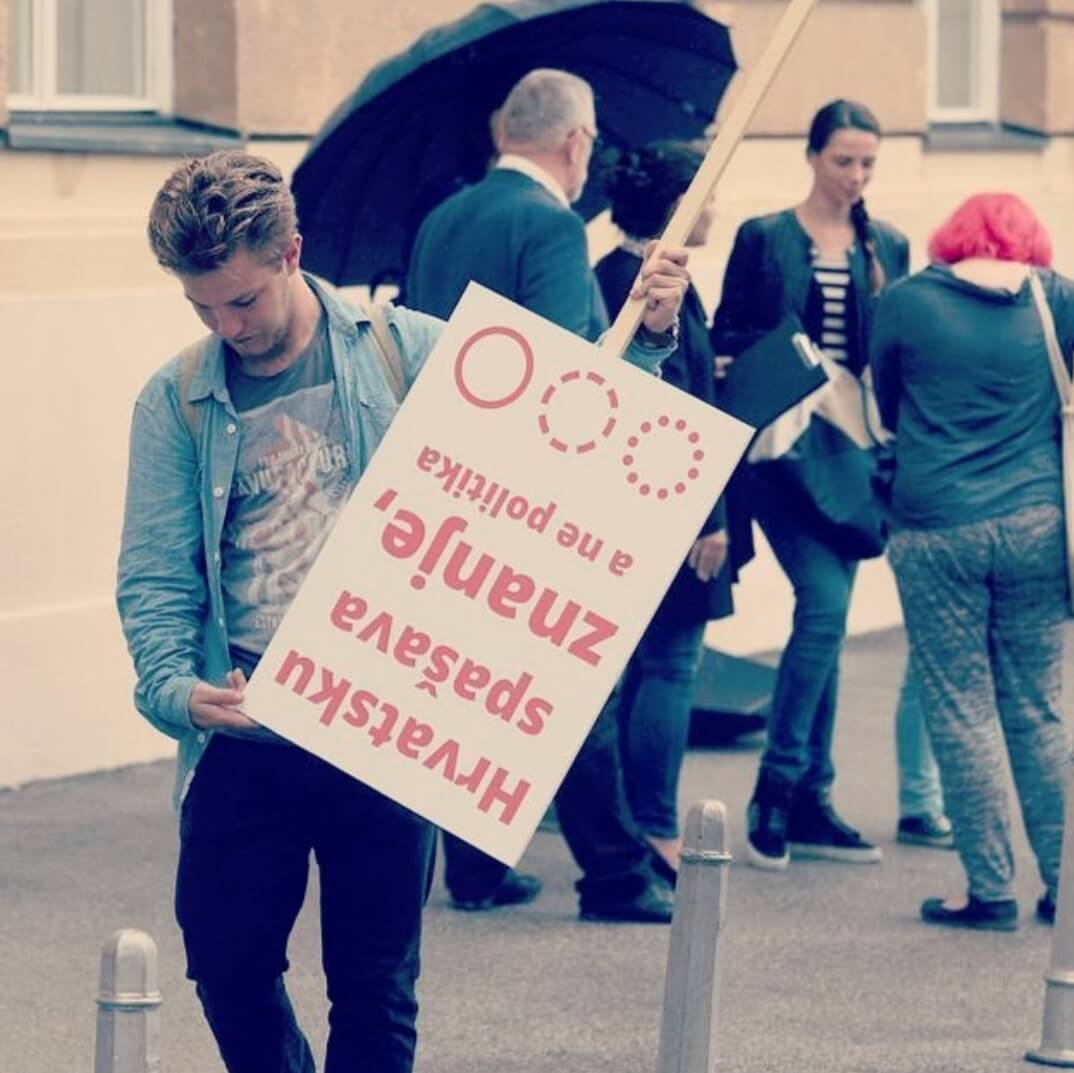
Matija during a student protest with a sign which reads: "Croatia is rescued by knowledge, not politics" © Matija Šalat / private archive
9) Based on your own experience, would you say that everything is possible in Croatia if you work hard, work on yourself, and are educated and ambitious?
To a much lesser extent than in the rest of Europe, but opportunities do exist, yes. The development of the IT industry over the past few years has provided a large number of well-paid jobs for which political connections aren't important. In addition to that, the lack of skilled labour for some areas clearly shows that within the private sector, this can go a long way. I think that we're starting to respect individual ability and effort a lot more than was the case in the last few decades.
10) If you could change only one thing in Croatia, what would it be, and why do you think it's important?
Although our society is marked by a lot of problems, if I had a magic wand, I would turn the judiciary into the total opposite of what it is today: reliable, efficient, and fair. An efficient judiciary would significantly improve our society, but more importantly, it would create a feeling among people that there are consequences for criminal behaviour, especially when it comes to corruption.
11) As a young Croat, what are you most proud of in Croatia? (if anything...)
I'm extremely proud of the beauty of our country, on every corner there is beautiful nature and historic heritage which is evident in a number of beautiful towns. I'm also proud of our sporting successes.

Matija enjoying life © Matija Šalat / private archive
12) Are you optimistic or pessimistic about the future of Croatia, will it be a better or worse place for your children?
I'm extremely optimistic about the future of Croatia. An important factor of my view is the emergence of new political options that may change the way this country is governed in the next few years. I hope that together, we will contribute to creating a healthier and happier environment for all of us.
To read more from the Croatian Graduate Perspective series, follow TCN's dedicated page.
For more about education in Croatia, follow TCN's dedicated page.
Croatian Graduate Perspective: The View from Emma in Vinkovci
April 18, 2021 - Continuing our Croatian Graduate Perspective series with Emma in Vinkovci, who believes great job offers and careers that provide lots of traveling would encourage young people to stay, because "it wouldn't make you wish to leave Croatia." This is her full story.
With many young people emigrating from Croatia, what keeps those who decided to stay (at least for now)?
The emigration of young people from Croatia in search of better business opportunities and living standards, unfortunately, is a well-known story. Each of us young people in Croatia knows at least a few people from their environment who, at one point, said that enough was enough and decided to seek happiness somewhere abroad.
According to official Eurostat data, from 2015 to 2019, Croatia's population decreased by 4.26 inhabitants per 1,000 citizens only thanks to emigration. Therefore, the Croatian emigration rate is the second-worst in the European Union (after Lithuania).
These data indicate that economic prosperity influences population decisions to emigrate. Besides, due to the exodus of the young and working population, there is an additional reduction in GDP per capita that closes the cycle of poverty and decline in Croatia.
However, there are many who are aware of the poor position of young people in Croatia but still do not want to give up and decide to stay in Croatia. We're wondering what do those young people, recent graduates, think about this whole situation and what are their reasons for staying in Croatia.
We continue our series with Emma from Vinkovci in eastern Croatia.
First of all, please introduce yourself. What are you studying/what did you study? Do you have a job currently?
My name is Emma Stephanie Gaunt. I am studying costume design, and I am in my final year of MA. I am currently working as a key costumer and as a costume standby on a project for a television series.
What is it like being a student/recent graduate in Croatia during this coronavirus time?
For faculties that operate on a project basis, it has not been easy. We had very few opportunities to connect and meet new collaborators, and the main thing with this job is to be known for who you are, how you work, and what you want to do. But currently, the situation is improving, and projects are coming to be a bit unexpectedly.

What are your experiences searching for a job in your profession in Croatia?
I haven't been actively searching for the last year because of Covid-19, and theatres aren't permitted to make new productions yet, so I am sure not many theatres need a costume assistant or wardrobe assistant in the theatre. Sometimes in this profession, jobs get offered to you. Usually, people from past projects contact you about a new project and want to include you. That has been working for me for now, but it wouldn't have happened if I have been passive in the past about my work.
What do you think of the Croatian Government's efforts to provide opportunities for graduates?
I think they are doing a fine job regarding engineering and medical students, but I don't think there is much they can do for costume design students.
Many young people your age decide to emigrate from Croatia to find a better job opportunity and/or life standard. What do you think about it?
I think they should go for it. Croatia is not a big country, and some jobs are not as wanted here as they are somewhere else. One of the main reasons for choosing costume design is to go out, travel, and improve. There is a lot of things you can learn out there. Everyone works differently.

In your opinion, what would encourage young people to stay in Croatia?
I have noticed lately that primarily students attached to their family or the ones who are going to inherit a house or piece of land are optimistic about staying here. I have also noticed that lots of people who leave Croatia come back for its relaxed everyday approach and way of working and living, and of course the great weather that we have here. I think for every student, the key to staying is mainly attachment and home. I guess the thing that would encourage young people to stay are great job offers straight after university and a career that provides lots of traveling because it wouldn't make you wish to leave Croatia.
Have you ever considered moving out of Croatia and why?
Yes. I feel that Croatia is really small for me and that if I could reach more audience, I think I should. I don't have many attachments here in Croatia, so it is easier for me to leave.
As a recent graduate, what is your impression of the education system in Croatia? What do you think is good about it and what could be better?
What I like about the Croatian education system is that, unlike some other countries, we can go to high schools that educate us about a particular vocation and craft. It is very useful, and it has also been for me.
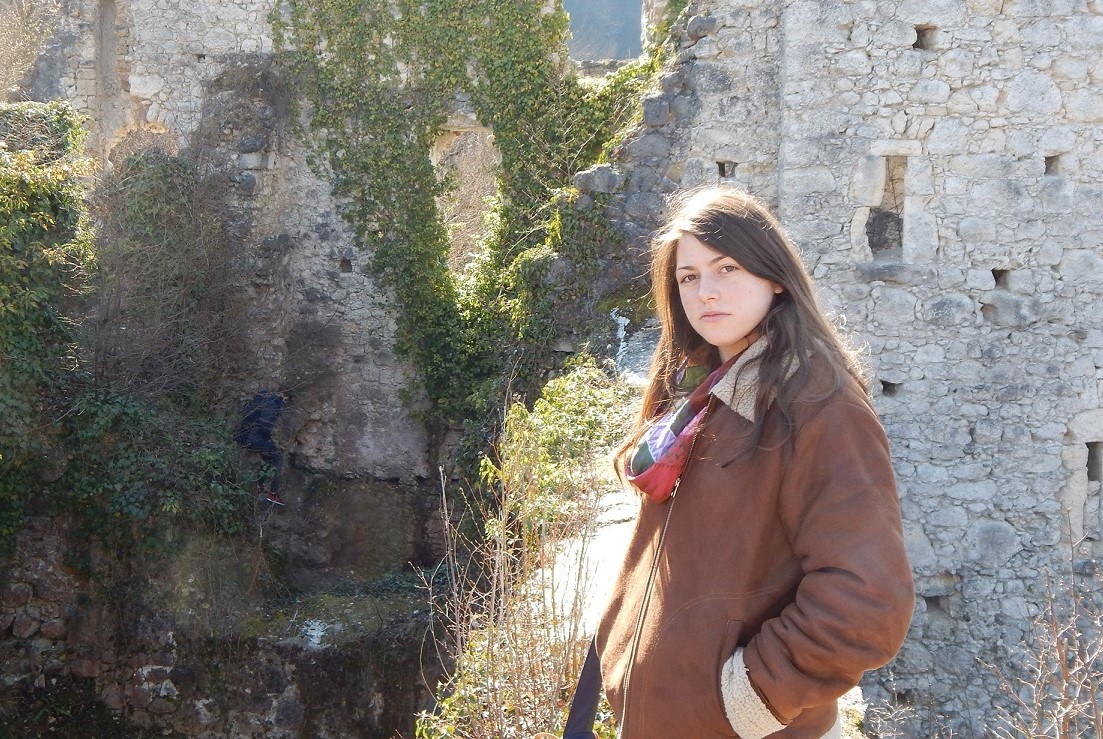
Based on your own experience, can you say that everything is possible in Croatia if you work hard, work on yourself, are educated and ambitious?
Yes, I believe it is, just some jobs here don't have the audience for it, and that can maybe be a problem, but sometimes you can reach your audience online, so it also works.
If you could change only one thing in Croatia, what would it be, and why do you think it's important?
The thing I really don't like in Croatia is the old communist system stemming out in different ways and functions. For instance, last year, during the first lockdown, people were being checked if they stayed at their homes by the police a few times in 2 days for some people. Even people who lived during Tito's time still stand by his politics.
As a young Croatian, what are you most proud of in Croatia?
The country's beauty and the lifestyle. And of course, our football players.
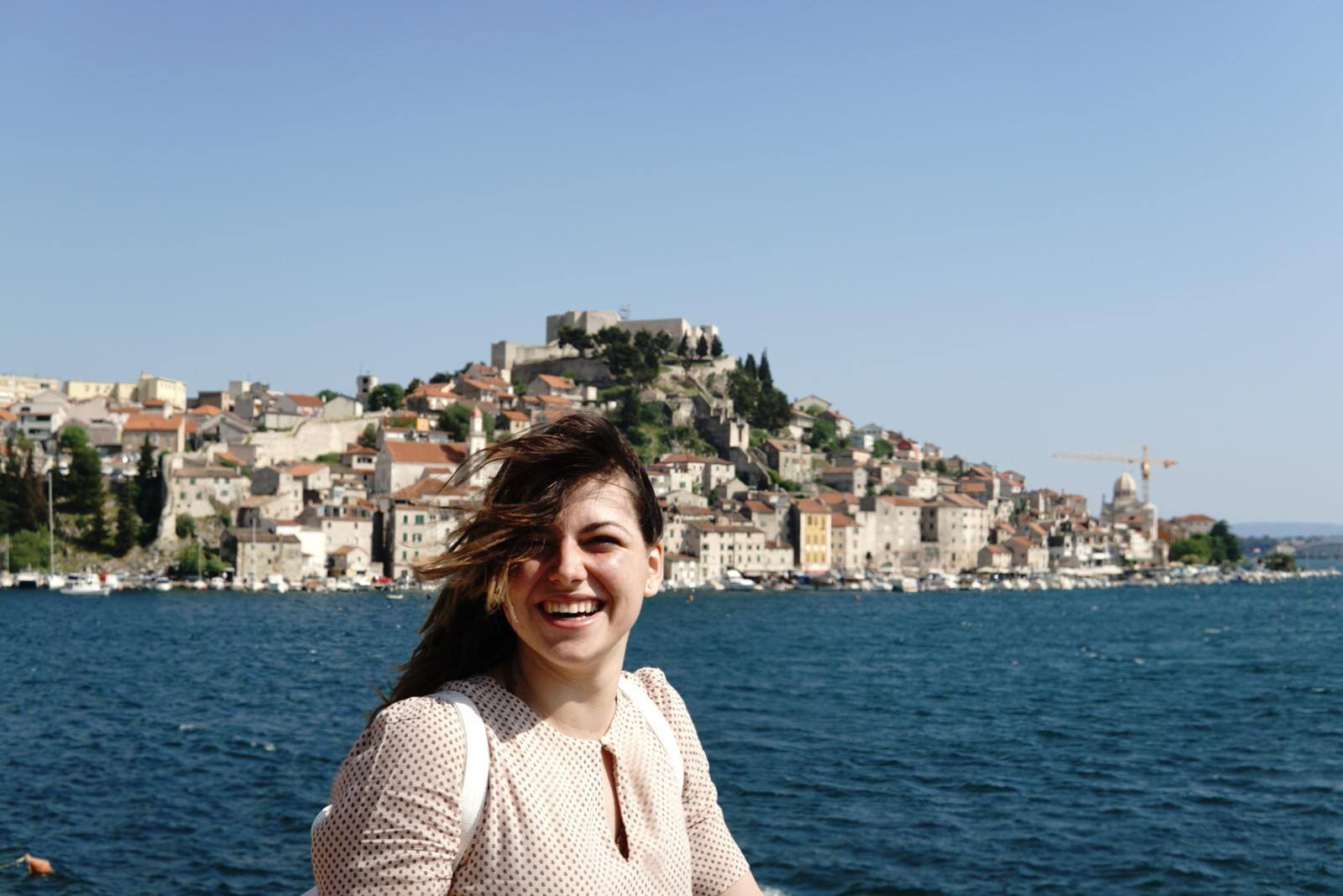
Are you optimistic or pessimistic about the future of Croatia, and will it be a better or worse place for your children?
I think Croatia is one of the best countries to raise your children. It is a really safe and innocent country. I believe it will be a better place.
Are you a student or recent graduate who would like to contribute your voice and experiences to this series? If yes, please contact This email address is being protected from spambots. You need JavaScript enabled to view it. with the subject "Graduate."
To read more from the Croatian Graduate Perspective series, follow TCN's dedicated page.
Croatian Graduate Perspective: The View from Bruno in Metkovic
April 11, 2021 - A weekly dose of positivity in our Croatian Graduate Perspective series with Bruno in Metkovic, who thinks that "everything is possible anywhere if you work hard, are ambitious, and have a clear plan of what you want to do in your life." This is his full story.
With many young people emigrating from Croatia, what keeps those who decided to stay (at least for now)?
The emigration of young people from Croatia in search of better business opportunities and living standards, unfortunately, is a well-known story. Each of us young people in Croatia knows at least a few people from their environment who, at one point, said that enough was enough and decided to seek happiness somewhere abroad.
According to official Eurostat data, from 2015 to 2019, Croatia's population decreased by 4.26 inhabitants per 1,000 citizens only thanks to emigration. Therefore, the Croatian emigration rate is the second-worst in the European Union (after Lithuania).
These data indicate that economic prosperity influences population decisions to emigrate. Besides, due to the exodus of the young and working population, there is an additional reduction in GDP per capita that closes the cycle of poverty and decline in Croatia.
However, there are many who are aware of the poor position of young people in Croatia but still do not want to give up and decide to stay in Croatia. We're wondering what do those young people, recent graduates, think about this whole situation and what are their reasons for staying in Croatia.
We continue our series with Bruno from Metkovic in Dubrovnik-Neretva County.
First of all, please introduce yourself. What are you studying/what did you study? Do you have a job currently?
My name is Bruno. I'm currently finishing my master's degree at the Faculty of Economics, Business, and Tourism in Split. I have a part-time job, but I will hopefully move on to a full-time job by the end of April.
What is it like being a student/recent graduate in Croatia during this coronavirus time?
Well, being a student during the coronavirus pandemic means that you have to attend classes from your bedroom. I'm really sorry for first-year students who can't experience the first year of faculty as I have.

Bruno has a bacherlor's degree in Economic, Business and Tourism
What are your experiences searching for a job in your profession in Croatia?
I'm specializing in marketing but have been working in tourism for a couple of years. Regarding tourism, there are plenty of opportunities for students in Croatia.
What do you think of the Croatian Government's efforts to provide opportunities for graduates?
In my opinion, the Croatian Government is not doing everything in its power to make our future brighter. I think that many jobs are coming from the private sector, but that doesn't mean that the Government can't make plans or projects for employing recent graduates.
Many young people your age decide to emigrate from Croatia to find a better job opportunity and/or life standard. What do you think about it?
I'm fully aware of the situation in Croatia. People outside Dalmatia and Zagreb are struggling to find jobs. The only reasonable action is to pack your things and try to make a career in foreign countries. But the coronavirus crisis is happening all over the world. It is becoming harder to find jobs outside of Croatia.
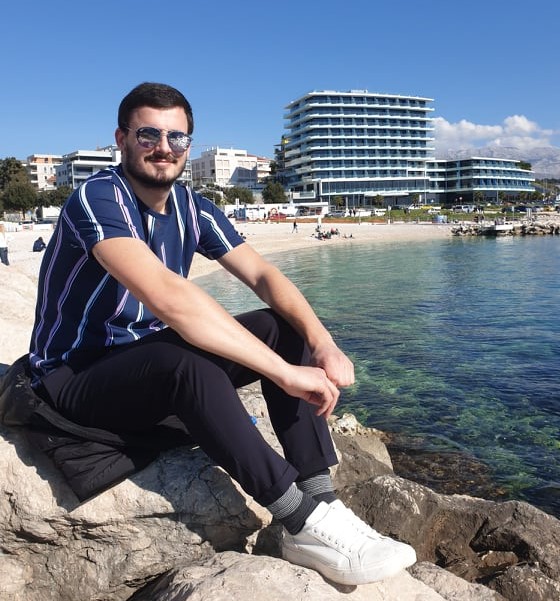
In your opinion, what would encourage young people to stay in Croatia?
Money. Jobs. Even if this sounds extreme, the family is not encouraging people to stay in Croatia. This only shows how bad the times really are.
Have you ever considered moving out of Croatia and why?
Yes. It's not only about job or career opportunities. I want to travel and see other countries, learn about cultures and meet new people. I believe that is the key to personal growth. I don't want to have regrets when I get old. Also, I was living in Prague for four months as part of an Erasmus student mobility program. That was such a great experience which affected my plans to go outside of Croatia.
As a recent graduate, what is your impression of the education system in Croatia? What do you think is good about it and what could be better?
Overall, I think the system lacks professional practice. We are learning too much about the theoretical side of jobs. After we finish schools/faculties, we are so unprepared for what is coming next. I think that students also need to be more specialized about one segment. I don't understand why you need to attend accounting class if you want to work in the sales department.
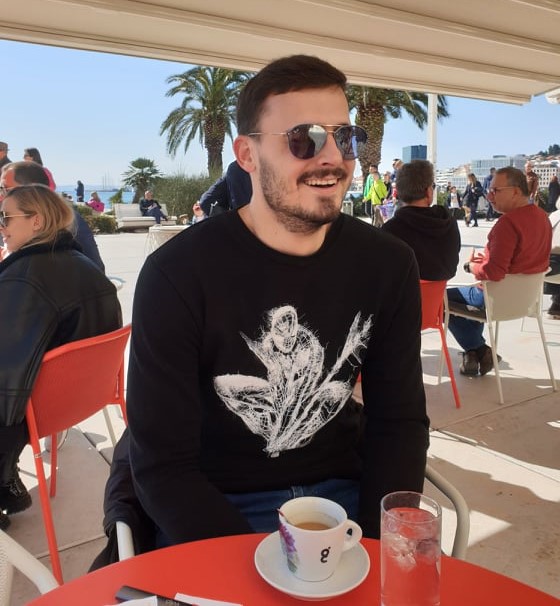
Based on your own experience, can you say that everything is possible in Croatia if you work hard, work on yourself, are educated and ambitious?
Everything is possible anywhere if you work hard, if you are ambitious, and if you have a clear plan of what you want to do in your life.
If you could change only one thing in Croatia, what would it be, and why do you think it's important?
I think we should change our mentality towards work habits. Croatians (especially people from Split) are very lazy. We are not productive like Scandinavians, and we try to make more money by working less. That is when you think of all the illegal ways to make that money.
As a young Croatian, what are you most proud of in Croatia?
The Adriatic Sea and everything it represents. Period.
Are you optimistic or pessimistic about the future of Croatia, and will it be a better or worse place for your children?
I am optimistic about the future of Croatia. I think it will be a good place for my children to live and raise their families.
Are you a student or recent graduate who would like to contribute your voice and experiences to this series? If yes, please contact This email address is being protected from spambots. You need JavaScript enabled to view it. with the subject "Graduate."
To read more from the Croatian Graduate Perspective series, follow TCN's dedicated page.
Croatian Graduate Perspective: The View from Jelena in Split
April 3, 2021 – Continuing our Croatian Graduate Perspective series with Jelena in Split, explaining her experience in finding a job in a profession that has been in short supply in Croatia – speech and language therapy. "My colleagues have relatively positive experiences if they are in smaller places, but if it is a larger city, it is much harder to get a job," says Jelena. This is her full story.
With many young people emigrating from Croatia, what keeps those who decided to stay (at least for now)?
The emigration of young people from Croatia in search of better business opportunities and living standards, unfortunately, is a well-known story. Each of us young people in Croatia knows at least a few people from their environment who, at one point, said that enough was enough and decided to seek happiness somewhere abroad.
According to official Eurostat data, from 2015 to 2019, Croatia's population decreased by 4.26 inhabitants per 1,000 citizens only thanks to emigration. Therefore, the Croatian emigration rate is the second-worst in the European Union (after Lithuania).
These data indicate that economic prosperity influences population decisions to emigrate. Besides, due to the exodus of the young and working population, there is an additional reduction in GDP per capita that closes the cycle of poverty and decline in Croatia.
However, there are many who are aware of the poor position of young people in Croatia but still do not want to give up and decide to stay in Croatia. We're wondering what do those young people, recent graduates, think about this whole situation and what are their reasons for staying in Croatia?
We continue our series with Jelena from the Dalmatian capital - Split.
First of all, please introduce yourself. What are you studying/what did you study? Do you have a job currently?
My name is Jelena, and I come from Split. I have a master's degree in speech and language therapy, and I'm currently working in Zagreb, where I also studied.
What is it like being a student/recent graduate in Croatia during this coronavirus time?
I think this is a pretty weird year, both for studying and for looking for your first job. I believe that the transition from college to work was a bit easier for me, considering that my profession has mostly been in short supply for at least some time in Croatia. On the other hand, I see that many of my friends are still struggling to find a job in their profession.

What are your experiences searching for a job in your profession in Croatia?
My experience is quite good because as a student, I worked in the institution where I still work, but in a different position. After my studies, they decided to hire me as a speech and language therapist. That's why I can't really talk about some job search experience because everything went in some logical sequence. On the other hand, my colleagues have relatively positive experiences if they are in smaller places, but if it is a larger city, it is much harder to get a job.
What do you think of the Croatian Government's efforts to provide opportunities for graduates?
Croatia is relatively insensitive to unemployment and youth employment problems in general, so nothing was different with our generation. We [speech and language therapists] first do an internship before the first employment. This year, the Croatian Government passed provisions that do not announce competitions for internships, which puts us in a very difficult position.
Many young people your age decide to emigrate from Croatia to find a better job opportunity and/or life standard. What do you think about it?
I think that most young people who leave Croatia do so with heavy hearts, leaving their family and friends there, but unfortunately aware and probably disappointed in the system they're in. A couple of job competitions are enough to make us aware of how things work, and when you go through that for months and years, I believe they have no other options left.

In your opinion, what would encourage young people to stay in Croatia?
I think that young people in Croatia would initially be encouraged by much greater employment opportunities. And then with much greater incentives to buy real estate, incentives to start a family, lower tax burdens, which are less than the rest of the country, but it is still too little.
Have you ever considered moving out of Croatia and why?
When I was younger, I was attracted to the idea of going and living somewhere outside of my country, but right now, it's the last thing I can imagine. On the other hand, never say never.
As a recent graduate, what is your impression of the education system in Croatia? What do you think is good about it and what could be better?
The education system in Croatia is very outdated and is changing very slowly. I think we start from the wrong foundations from kindergarten and elementary school, and then everything builds on that. Faculty is mostly the culmination of theoretical learning and stress with minimal practice. The only thing that really prepares you for work is realizing that you need to be very proactive and independent, so for those motivated, it is a very valuable experience for future jobs.
Based on your own experience, can you say that everything is possible in Croatia if you work hard, work on yourself, are educated and ambitious?
So if I follow my example and consider it a success for an excellent student to find a job in the profession after graduation, then yes. The other side is the amount of energy, work, and effort invested in the whole education, and then the work and the financial aspect that is a product of that. The social sciences and humanities in Croatia are still significantly underestimated and even underpaid. I believe that the amount of effort, ambition, and education in Croatia, unfortunately, does not ensure proportional success.

If you could change only one thing in Croatia, what would it be, and why do you think it's important?
If I could change one thing in Croatia, it would be the corruption that is deeply rooted in our society.
As a young Croatian, what are you most proud of in Croatia?
I am most proud of all Croatian residents' successes in every aspect (sports, academic, business) despite minimal state assistance.
Are you optimistic or pessimistic about the future of Croatia, and will it be a better or worse place for your children?
I am mostly pessimistic about the future because the changes are small and slow, and this system of living and working is unfortunately unsustainable.
Are you a student or recent graduate who would like to contribute your voice and experiences to this series? If yes, please contact This email address is being protected from spambots. You need JavaScript enabled to view it. with the subject "Graduate."
To read more from the Croatian Graduate Perspective series, follow TCN's dedicated page.
Croatian Graduate Perspective: The View from Dorian in Rab
March 21, 2021 – "If people realize that their future is their responsibility, not the government's, then everything is possible. We have many successful individuals as examples. If they can, then it is possible," says economy student Dorian in Rab, currently studying in Portugal, about opportunities in Croatia. This is his story.
With many young people emigrating from Croatia, what keeps those who decided to stay (at least for now)?
The emigration of young people from Croatia in search of better business opportunities and living standards, unfortunately, is a well-known story. Each of us young people in Croatia knows at least a few people from their environment who, at one point, said that enough was enough and decided to seek happiness somewhere abroad.
According to official Eurostat data, from 2015 to 2019, Croatia's population decreased by 4.26 inhabitants per 1,000 citizens only thanks to emigration. Therefore, the Croatian emigration rate is the second-worst in the European Union (after Lithuania).
These data indicate that economic prosperity influences population decisions to emigrate. Besides, due to the exodus of the young and working population, there is an additional reduction in GDP per capita that closes the cycle of poverty and decline in Croatia.
However, there are many who are aware of the poor position of young people in Croatia but still do not want to give up and decide to stay in Croatia. We're wondering what do those young people, recent graduates, think about this whole situation and what are their reasons for staying in Croatia.
We continue our series with Dorian from the island of Rab.
First of all, please introduce yourself. What are you studying/what did you study? Do you have a job currently?
My name is Dorian Antešić. I am studying Finance and Banking at the Faculty of Economics and Business at the University of Rijeka. I am currently on exchange study in Coimbra, Portugal, to write my master's, so I do not have a job, but I am working on my podcast. Its name is "Pričajmo o novcu" (Let's talk about money), and it is the first Croatian podcast specialized in finance and economics topics. It is a hobby project that I enjoy recording while I research for my thesis. I like to speak with intelligent people, so it is a perfect way to communicate with comprehension.
What is it like being a student/recent graduate in Croatia during this coronavirus time?
It is very uncertain considering that we do not know what will be open in the future. Businesses are cautious with expenditure and investments. Social life is not rich, so it is getting boring after more than one year of restrictions.
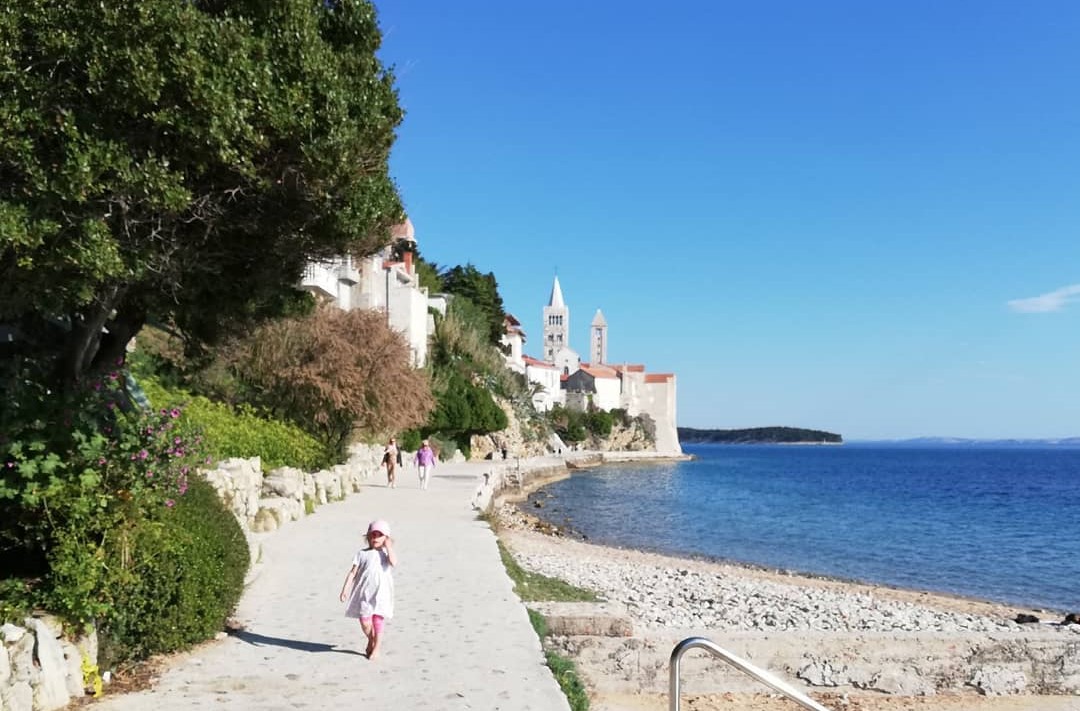
Rab island
What are your experiences searching for a job in your profession in Croatia?
I did not yet search for a job in Croatia, considering my profession. My focus is currently on the international scene. I want to travel the world a bit. Therefore, since I am studying abroad, it seems reasonable that I continue the travel and develop my career. In earlier years, I mainly worked during summer to focus on my faculty obligations and my projects during other seasons.
What do you think of the Croatian Government's efforts to provide opportunities for graduates?
Actually, I did not research what possibilities are offered by the Government. I was focused on my own effort to find jobs and/or internships.
Many young people your age decide to emigrate from Croatia to find a better job opportunity and/or life standard. What do you think about it?
I am one of them but not necessary for those reasons. I want to travel the world, experience different cultures. I know it sounds like a cliché, but I lived this way for the past five years of my study. I studied abroad twice, first in Prague and now in Coimbra. Also, I was part of international youth organizations since the beginning of faculty. I like that lifestyle, and I want to continue to live like that for some time.
I am also not a determinist. I do not want to say that I will live abroad or only in Croatia. We will see what the future brings. If I work and live abroad, it doesn't mean that I will stay there forever. In the end, I am an individualist. I do not care about countries. The goal is to have a good life for my loved ones and me, whether in Croatia, the EU, or Africa. :)
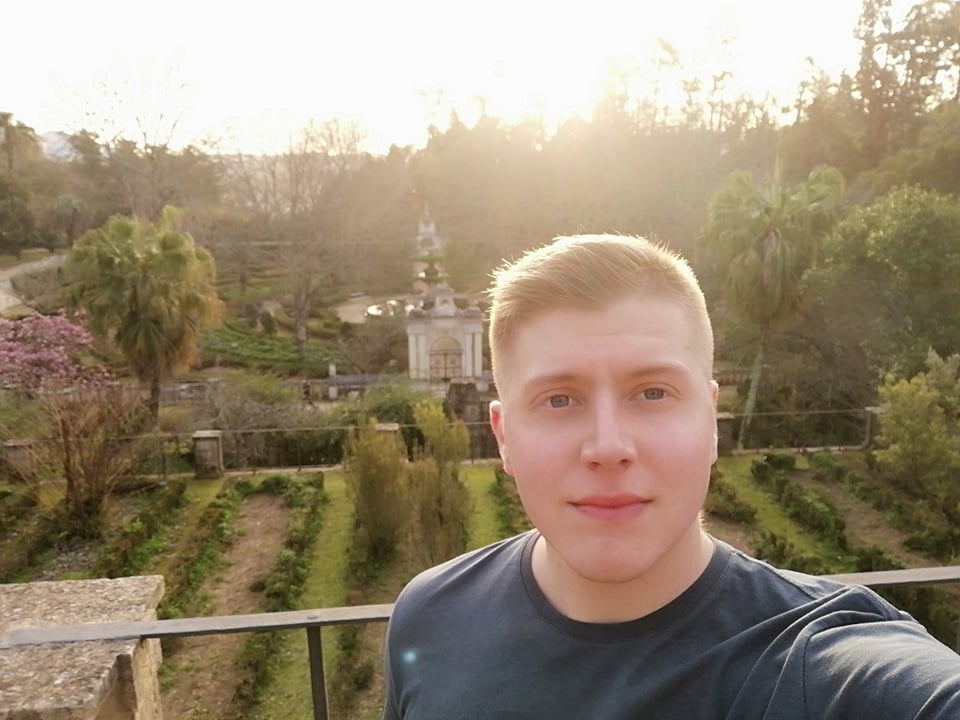
In your opinion, what would encourage young people to stay in Croatia?
Better economy. Just that. No "government benefits," no "family benefits." That is just bullshit :). The only thing that will encourage young people to stay in Croatia is the same or better opportunities than in the rest of the EU. If they see that they can have a better life with their skills outside of Croatia, they will go there. The world is globalized. Young people live internationally through the internet. We speak with foreigners almost every day through social media. Borders don't play that big thing nowadays.
Have you ever considered moving out of Croatia and why?
I did. I am focused on building my career. I love business, economics, and the crypto industry, and I very much see myself working there. In Croatia, not many companies are building the crypto world or investment funds that are supporting them. I am interested primarily in investing in crypto, which plays a big part in my job search.
As a recent graduate, what is your impression of the education system in Croatia? What do you think is good about it and what could be better?
The Croatian education system is, in my opinion, of good quality, but it can be much, much better with no significant financial investments. For my profession, we should teach more about technical skills like Excel and programming. They are an essential part of working life, but we still write and calculate mostly on paper through both Bachelor's and Master's level. I know that is the same thing with other professions like sociology, where I have a good friend. Data analysis is an integral part of many professions, but we focus on them minimally.

Based on your own experience, can you say that everything is possible in Croatia if you work hard, work on yourself, are educated and ambitious?
I think yes. If people realize that their future is their responsibility, not the government's, everything is possible. We have many successful individuals as examples. If they can, then it is possible.
If you could change only one thing in Croatia, what would it be, and why do you think it's important?
To become a capitalist country.
People are too dependent on the government, financially and mentally. When people trade freely with personal responsibility, they create value for themselves and the whole society. Currently, Croatian people want government intervention in every aspect of life, from business to education. They think that government is there to solve their problems which is mostly the other way around – the Government creates issues, and people are there to deal with them. People should focus on creating value for others.
As a young Croatian, what are you most proud of in Croatia?
I am also very proud of our tech business successes that we see lately. It is showing people that world success is possible, and we should strive for excellence.
Are you optimistic or pessimistic about the future of Croatia, and will it be a better or worse place for your children?
I am optimistic about Croatia's future because I am optimistic about the future of the whole world. People are smart, and they will always find solutions to problems. Always.
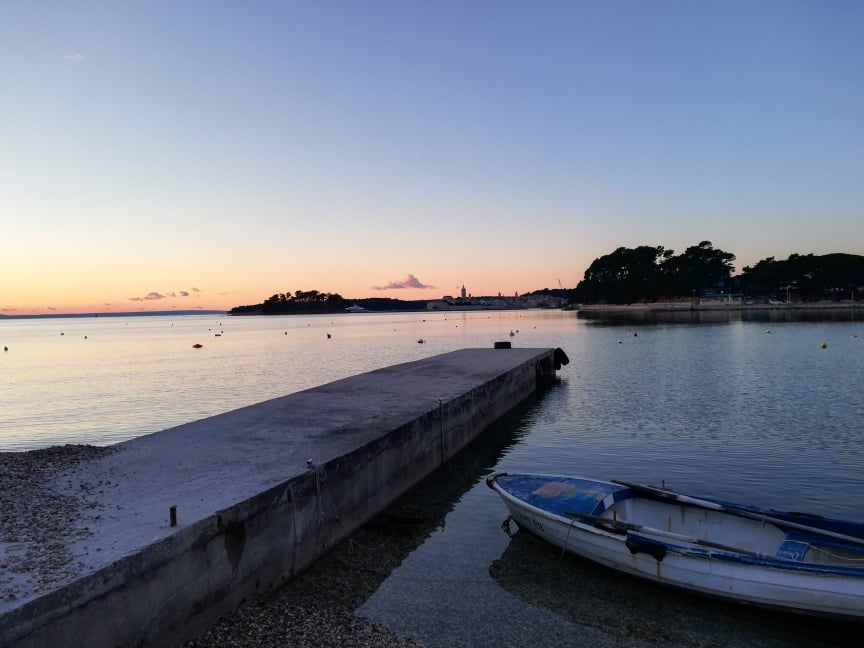
Rab island
Are you a student or recent graduate who would like to contribute your voice and experiences to this series? If yes, please contact This email address is being protected from spambots. You need JavaScript enabled to view it. with the subject "Graduate."
To read more from the Croatian Graduate Perspective series, follow TCN's dedicated page.
Croatian Graduate Perspective: The View from Karla in Zagreb
March 14, 2021 – In our Croatian Graduate Perspective series, we spoke with Karla in Zagreb. She thinks that the same quality of education is not provided in all parts of Croatia and that there should be more job opportunities in all parts of the country, not just in big cities. "We have to work on having all children get the same access to education, especially in today's digital world," says Karla, and this is her story.
With many young people emigrating from Croatia, what keeps those who decided to stay (at least for now)?
The emigration of young people from Croatia in search of better business opportunities and living standards, unfortunately, is a well-known story. Each of us young people in Croatia knows at least a few people from their environment who, at one point, said that enough was enough and decided to seek happiness somewhere abroad.
According to official Eurostat data, from 2015 to 2019, Croatia's population decreased by 4.26 inhabitants per 1,000 citizens only thanks to emigration. Therefore, the Croatian emigration rate is the second-worst in the European Union (after Lithuania).
These data indicate that economic prosperity influences population decisions to emigrate. Besides, due to the exodus of the young and working population, there is an additional reduction in GDP per capita that closes the cycle of poverty and decline in Croatia.
However, there are many who are aware of the poor position of young people in Croatia but still do not want to give up and decide to stay in Croatia. We're wondering what do those young people, recent graduates, think about this whole situation and what are their reasons for staying in Croatia.
We continue our series with Karla from the capital of Croatia.
First of all, please introduce yourself. What are you studying/what did you study? Do you have a job currently?
Hello to all of your readers! My name is Karla, and I am currently working on my Masters' Degree in Social Work at the University of Zagreb. Also, I am doing administrative work in one NGO as my student job.
What is it like being a student/recent graduate in Croatia during this coronavirus era?
I attended my last semester of undergraduate studies and I will attend my full year of graduate study from home. My faculty's building was ruined in the big earthquake that occurred last March in Zagreb, so that was the second reason we had classes online. My studies are based on a lot of practical work in various institutions, NGOs, and hospitals, so we lacked that aspect of studying, which is usually the best part. Also, that social component of having a coffee or lunch after classes were missing.

The building of the study center for social work at the University of Zagreb / Source: Unizg.hr
What are your experiences searching for a job in your profession in Croatia?
To become a social worker in Croatia, you are supposed to do a year-long internship in a Government institution to take a professional exam. Considering that, I have not yet searched for a job in my profession. Still, I am checking webpages of ministries and institutions to see how often they post job applications for interns.
What do you think of the Croatian Government's efforts to provide opportunities for graduates?
Graduates are great potential as they are willing to work and are hungry for practical knowledge. The Government should use that on behalf of all parties. Employers should be more stimulated to take graduates. In that way, companies will get motivated workers, and young people will get work experience crucial for getting the desired job in the future.
Many young people your age decide to emigrate from Croatia to find a better job opportunity and/or life standard. What do you think about it?
I know many young people who left Croatia because they found jobs abroad, not just better-paid jobs, but also workplaces where they are respected and valued. Now, they are not even thinking about returning when they compare working conditions abroad and here. On the other hand, young people are coming back because they were not happy. It depends on the person and the culture that person enters. I don't see anything wrong in trying and finding out what is suitable for you.

In your opinion, what would encourage young people to stay in Croatia?
Something that would encourage young people to stay in Croatia is job stability, which is currently lacking. Having that stability, young people would be able to plan a future in Croatia. Also, there should be more opportunities in all communities, not just in big cities.
Have you ever considered moving out of Croatia and why?
I see myself living abroad for a certain period of time, but definitely not forever. I want to experience working and living in some other country for a couple of months or years. For example, I plan to spend a few months working in the USA this year if the coronavirus pandemic situation allows me to. I would love to use the knowledge and skills acquired abroad to do something beneficial at home.
As a recent graduate, what is your impression of the education system in Croatia? What do you think is good about it and what could be better?
We have witnessed some outstanding achievements of young people from Croatia in international competencies and academic results. After finishing primary and high school in Croatia, you get a wide range of knowledge and an excellent base for further education. Still, the same quality of education is not provided in all parts of the country. We have to work on giving all children the same access to education, especially in today's digital world where not all children have access to the internet and technology. In higher education, I would like to see more problem–solving and less studying a considerable amount of information that we don't use in practice.

Zagreb by Romulić and Stojčić
Based on your own experience, can you say that everything is possible in Croatia if you work hard, work on yourself, are educated and ambitious?
I would agree with this statement! I believe we Croatians are supportive of each other. From time to time, when someone succeeds abroad or at home, you can read articles about their path of success. Of course, some branches are underdeveloped, and it is very difficult to succeed in them without law or structural change, but you know what they say – nothing is impossible, for impossible, you just need more time.
If you could change only one thing in Croatia, what would it be, and why do you think it's important?
I want more people to acknowledge that change can be good. It helps us grow. Things are not meant to stay the same for decades.
As a young Croatian, what are you most proud of in Croatia?
Except for our beautiful nature and tradition, of course, something I am really proud of is our sense of unity, especially when a difficult situation occurs. We have seen it in the past few years more than several times. But even when we fight against floods, earthquakes, fires, or pandemics, we do not lose our sense of humor and cheerful spirit.

Are you optimistic or pessimistic about the future of Croatia, and will it be a better or worse place for your children?
I am very optimistic about the future of Croatia! I believe that young people are getting more seen and heard. Older generations are learning from the young as well as vice versa. We all want what is best for our future, and I can see some things changing for the better.
Are you a student or recent graduate who would like to contribute your voice and experiences to this series? If yes, please contact This email address is being protected from spambots. You need JavaScript enabled to view it. with the subject "Graduate."
To read more from the Croatian Graduate Perspective series, follow TCN's dedicated page.
Croatian Graduate Perspective: The View from Young Pilot Stjepan in Novska
March 7, 2021 – Asked whether he had ever considered moving out of Croatia, a young future pilot Stjepan in Novska said he would be lying if he said no. "After all, my profession's nature is such that it expects me to be a worldly man. But there were also thoughts of leaving based on the state of affairs in the state itself," says Stjepan in our Croatian Graduate Perspective series, and this is his story.
With many young people emigrating from Croatia, what keeps those who decided to stay (at least for now)?
The emigration of young people from Croatia in search of better business opportunities and living standards, unfortunately, is a well-known story. Each of us young people in Croatia knows at least a few people from their environment who, at one point, said that enough was enough and decided to seek happiness somewhere abroad.
According to official Eurostat data, from 2015 to 2019, Croatia's population decreased by 4.26 inhabitants per 1,000 citizens only thanks to emigration. Therefore, the Croatian emigration rate is the second-worst in the European Union (after Lithuania).
These data indicate that economic prosperity influences population decisions to emigrate. Besides, due to the exodus of the young and working population, there is an additional reduction in GDP per capita that closes the cycle of poverty and decline in Croatia.
However, there are many who are aware of the poor position of young people in Croatia but still do not want to give up and decide to stay in Croatia. We're wondering what do those young people, recent graduates, think about this whole situation and what are their reasons for staying in Croatia.
We continue our series with Stjepan from Novska, the most western Slavonian town.
First of all, please introduce yourself. What are you studying/what did you study? Do you have a job currently?
Hello, I am glad that you hosted me in this interview. It is a great honor to be part of a series of interviews where young people's voice is heard. My name is Stjepan, I currently live in Zagreb, and I am studying at the graduate study of aeronautics at the Faculty of Transport and Traffic Sciences in Zagreb. I am attending my last semester before I become a master's engineer in aeronautics. Along with college, I also completed civilian pilot training. I am not actively employed at the moment; I do some student work here and there.
What is it like being a student/recent graduate in Croatia during this coronavirus time?
Being a Croatian student during the coronavirus pandemic has become a bit more complicated. Although the faculty managed to organize almost all the exercises virtually, many projects do not hold precisely because of the coronavirus pandemic. Also, although students are not deprived of Erasmus programs and professional internships, they are deprived of the quality of the same. I believe that live and virtual internships are totally different. You can learn more by going to some of the institutions or companies within Europe.
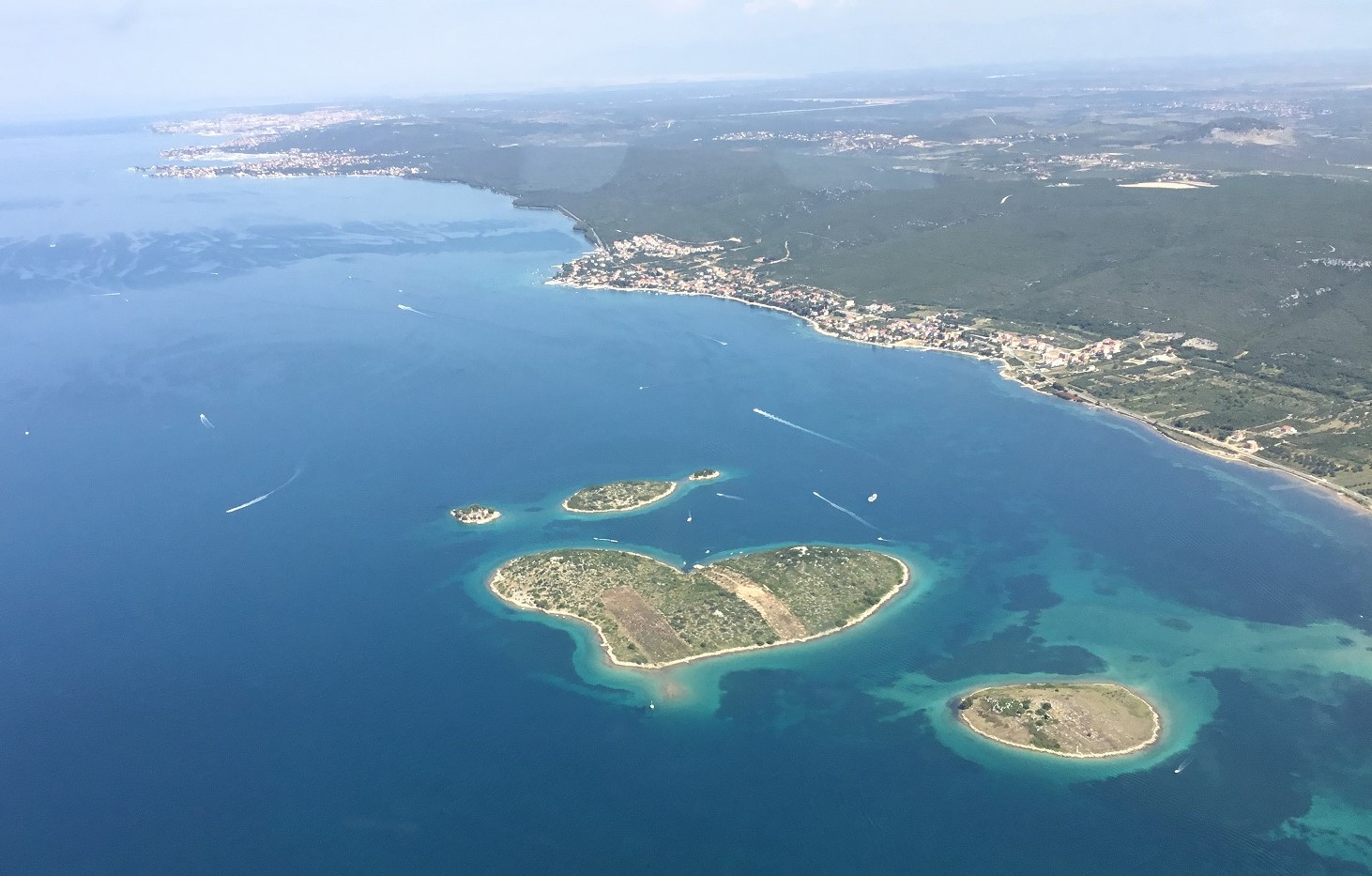
Heart-shaped Croatian island of Galešnjak - just one of many Croatian beautiful landscapes Stjepan sees during his flights
What are your experiences searching for a job in your profession in Croatia?
I have not yet started looking for a job in the profession. Still, listening to older colleagues' experiences, I can conclude that the aviation and air transport industry was booming until 2019 before the pandemic hit Europe. While now, the industry is practically still on its knees. Some experts predict that the industry will return to the old way only in 2024, but that depends on many factors involved in the story. I plan to graduate in the autumn of this year, so my hopes of finding a job in the profession right after graduating from college are very low.
What do you think of the Croatian Government's efforts to provide opportunities for graduates?
The Government is already helping enough because every state faculty in Croatia is free, and tuition fees for full-time students are financed from taxpayers' money. But, of course, it can always be better. Therefore, I also think that the Government should support entrepreneurs financially and develop various support programs to scout gifted students in the lower years of college to offer internships or employment on a student contract in their firms. Of course, taking into account the needs for future staff and that the employee is a student from the appropriate industry.
Many young people your age decide to emigrate from Croatia to find a better job opportunity and/or life standard. What do you think about it?
People have always emigrated from these areas for reasons and priorities known only to them. While I was finishing high school, emigrating abroad just became "in." Then I thought that only people who were less educated or could not make ends meet here in Croatia emigrated, or those who had completed schools for industries that practically and do not exist in Croatia today anymore. Later, it grew into a search for a state with a higher standard of living and reduced bureaucracy. While today, a growing share is made up of highly educated people. Worst of all, I'll probably be one of them one day too.
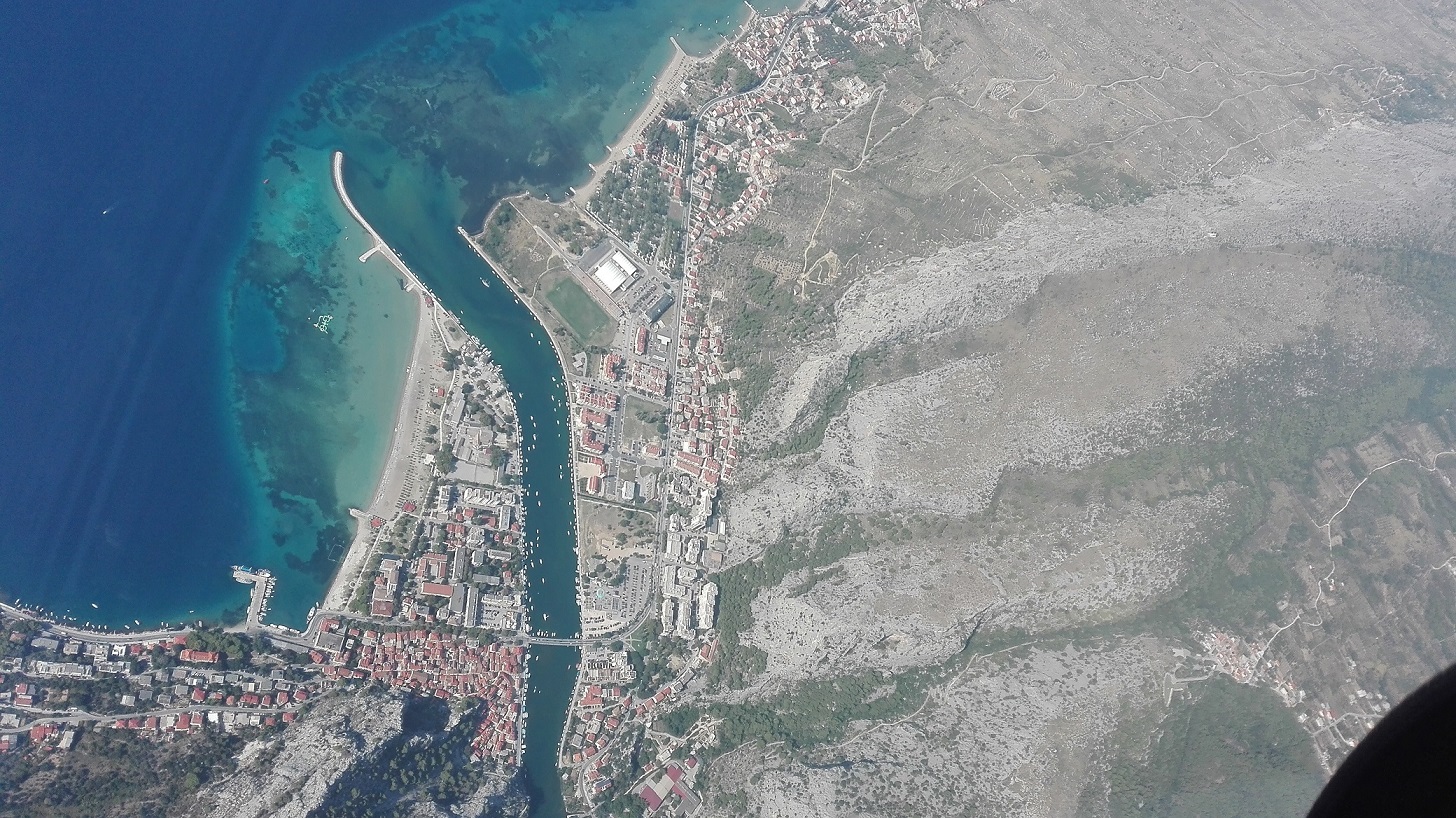
The confluence of the Cetina River and the Adriatic Sea in Omiš
In your opinion, what would encourage young people to stay in Croatia?
Reducing nepotism and corruption, better government and employment policies, lower taxes, attracting foreign capital or money from investment funds for project development or start-up industries. Also, the problem of young people in Croatia is solving the housing issue.
Have you ever considered moving out of Croatia and why?
Yes, I have. I would be lying if I said I haven't. After all, my profession's nature is such that it expects me to be a worldly man. But there were also thoughts of leaving based on the state of affairs in the state itself.
As a recent graduate, what is your impression of the education system in Croatia? What do you think is good about it and what could be better?
I think that Croatia's education system is good, and the grade I would give is 3 or 4, in between. I believe that some things are taught too broadly and that it is ok for primary school. However, in high school, it should be corrected. The compulsory subjects that everyone must have should be determined, and students should choose the rest according to their preferences or psychological tests. About college education, I believe it produces top professionals who can match the world. But unlike the world, too much remains on theory, and, as I mentioned earlier, more practice needs to be introduced.
Based on your own experience, can you say that everything is possible in Croatia if you work hard, work on yourself, are educated and ambitious?
This quote may sound cynical and worn out, but I would like to quote Sylvester Stallone from the Rocky Balboa movie: "It's not about how hard you hit. It's about how hard you can get hit and keep moving forward. How much you can take and keep moving forward."
And I think that quote is valid, especially for Croatia. The only problem is that they never stop "hitting" you here, hahaha. But, yes, if someone has a strong enough motive, they can finish whatever they want. But whether he will succeed and find or get the desired job in the profession or a job in the profession in general, that is the story for another interview.

Stjepan says the aviation and air transport industry is on its knees now, making it uncertain for him to find a job
If you could change only one thing in Croatia, what would it be, and why do you think it's important?
That Croatia ceases to be just a country for a good vacation but to become much more than that. Those who read this sentence with understanding will understand the message.
As a young Croatian, what are you most proud of in Croatia?
I am most proud of the country's natural beauty and the people. I had the opportunity to travel throughout Europe, and I have never met people like us. Ready to help a stranger on the street, most people speak a foreign language or at least try to express it. Oh yes, and unity. The unity of my people when it matters and when people need help. That's usually that short period when we don't quarrel with each other to the point of blood about politics, haha.
Are you optimistic or pessimistic about the future of Croatia, and will it be a better or worse place for your children?
I would say I am optimistic. The situation is bad, and I don't know if it will change soon. I believe that you should always go forward and do good in life, and I think that not much can be achieved by going back and pointing fingers.
Also, I believe that a great unity of the people is needed, which is currently undermined by distrust in this country's governing structures. That distrust has fallen on fertile ground and is flooded every day with a new number of people who sat in a vehicle and left their homeland forever.
And about the future when I'll have children, it will be good for them only if I create the necessary conditions for that. That is why I believe that it is our responsibility to create a better future.

Are you a student or recent graduate who would like to contribute your voice and experiences to this series? If yes, please contact This email address is being protected from spambots. You need JavaScript enabled to view it. with the subject "Graduate."
To read more from the Croatian Graduate Perspective series, follow TCN's dedicated page.
Croatian Graduate Perspective: The View from Rebeka in Osijek
February 28, 2021 – A very positive and optimistic view in the Croatian Graduate Perspective series comes from Rebeka in Osijek. "In Slavonia, where I come from, the number of those leaving has greatly increased in the last couple of years. So maybe if we invest more in our own communities to improve opportunities there, especially rural ones, we could give our young people a chance for growth and prosperity here," says Rebeka. This is her story.
With many young people emigrating from Croatia, what keeps those who decided to stay (at least for now)?
The emigration of young people from Croatia in search of better business opportunities and living standards, unfortunately, is a well-known story. Each of us young people in Croatia knows at least a few people from their environment who, at one point, said that enough was enough and decided to seek happiness somewhere abroad.
According to official Eurostat data, from 2015 to 2019, Croatia's population decreased by 4.26 inhabitants per 1,000 citizens only thanks to emigration. Therefore, the Croatian emigration rate is the second-worst in the European Union (after Lithuania).
These data indicate that economic prosperity influences population decisions to emigrate. Besides, due to the exodus of the young and working population, there is an additional reduction in GDP per capita that closes the cycle of poverty and decline in Croatia.
However, there are many who are aware of the poor position of young people in Croatia but still do not want to give up and decide to stay in Croatia. We're wondering what do those young people, recent graduates, think about this whole situation and what are their reasons for staying in Croatia.
We continue our series with Rebeka from Osijek in eastern Croatia.
First of all, please introduce yourself. What are you studying/what did you study? Do you have a job currently?
Hello! My name is Rebeka, and I am currently studying for my master's degree in Social Work at the University of Zagreb. I have several student jobs, where I work occasionally. One of them, where I work most of the time, is a shelter for children and adults, domestic violence victims.
What is it like being a student/recent graduate in Croatia during this coronavirus time?
Well, I plan to graduate in July or September, depending on the coronavirus situation, which includes my plans for this summer. I know some of my colleagues who graduated in 2020 still haven't found jobs. So, to be honest, although I'm looking forward to graduating and finally start to work in my profession, it's going to be challenging, especially at this time. But I believe that if you try hard enough and are persistent and patient, something will eventually come up.
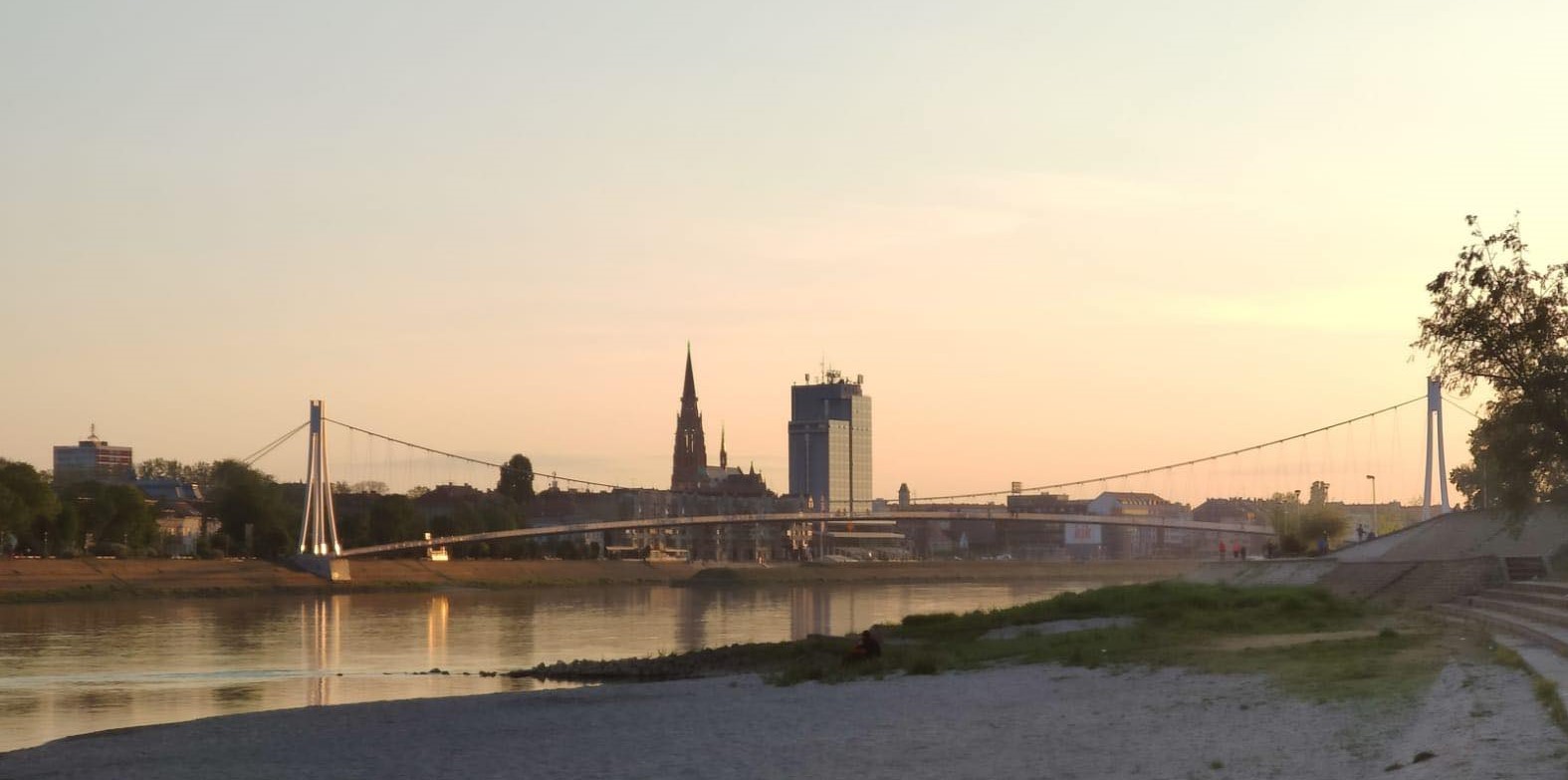
Osijek / Hrvoje Dumančić
What are your experiences searching for a job in your profession in Croatia?
As a student, you can't really work as a social worker. So, I don't have experience with this yet.
What do you think of the Croatian Government's efforts to provide opportunities for graduates?
It is important to educate students about their abilities after they complete their studies. Knowing that graduates will play a significant role in economic recovery, I think that greater support of the Croatian Government should be given to recent graduates who will now enter the labor market due to coronavirus, where there are fewer job opportunities and increased competition.
Many young people your age decide to emigrate from Croatia to find a better job opportunity and/or life standard. What do you think about it?
As a result of our economy's situation, I think that young people lack safety and stability here in Croatia, and those two are essential components of one's life. Also, young intellectuals are looking to expand their knowledge and experiences further and find a variety of possibilities for improvements, whether in professional or personal life. In the end, I think everyone chooses what they consider the best option for themselves in that given moment.

Rebeka in Kopački Rit Nature Park
In your opinion, what would encourage young people to stay in Croatia?
It is excellent that the EU's current emigration dynamic gives us opportunities for free flow in Europe, but on the other hand, our hometowns and communities are left empty. For example, in Slavonia, where I come from, the number of those leaving has greatly increased in the last couple of years. So, in my opinion, maybe if we invest more in our own communities to improve opportunities there, especially rural ones, we could give our young people a chance for growth and prosperity here.
Have you ever considered moving out of Croatia and why?
I would be lying if I said I haven't. Although I would love to stay here in Croatia for now, I also try to be open to life and new experiences to see what the future will bring.
As a recent graduate, what is your impression of the education system in Croatia? What do you think is good about it and what could be better?
I think that our educational system develops a highly skilled workforce that can compete globally. Since primary school, we learn very extensively about various subjects. In my opinion, we should increase optional subjects and reduce compulsory subjects. Great emphasis is also placed on memorizing facts that should be diminished, and we should engage more problem-solving tasks and increase the ability to learn in practice.
Based on your own experience, can you say that everything is possible in Croatia if you work hard, work on yourself, are educated and ambitious?
I haven't had a bad experience with this one, so I believe yes! Of course, I think that politics is largely involved, but that's another story.
If you could change only one thing in Croatia, what would it be, and why do you think it's important?
Awareness of the beauty we have in front of our eyes, and to learn to cherish it.

As a young Croatian, what are you most proud of in Croatia?
A lot of things! We have so much natural richness in the country – beautiful national parks, mountains, fields, sea, fantastic food and warm people, and by far the best fans when it comes to sports. We are an exceptional nation, always quarreling and arguing. Everyone is against everyone, but when a crisis occurs, we are all there together, united, and always ready to help.
Are you optimistic or pessimistic about the future of Croatia, and will it be a better or worse place for your children?
I would say that I am an optimist, and I like to look at things realistically, as they are, with a dose of optimism. Many things are out of my control, but I know that what is in my power is that I can give my best to become a great social worker one day and, what is more important, a great human being.
And as Viktor Frankl once said, we are those who were being questioned by life – daily and hourly. At every given moment, we have the power to make decisions that will lead us to a better future for ourselves and our children. I think that every time has its good and bad things. We just need to find the good ones to focus on because bad things will always happen – it is just a matter of our perspective.

Osijek / Hrvoje Dumančić
Are you a student or recent graduate who would like to contribute your voice and experiences to this series? If yes, please contact This email address is being protected from spambots. You need JavaScript enabled to view it. with the subject "Graduate."
To read more from the Croatian Graduate Perspective series, follow TCN's dedicated page.
Croatian Graduate Perspective: The View from Mislav in Vinkovci
February 21, 2021 - "Students should be more educated about self-employment. What is needed to be done is to encourage them, teach them their rights, show them ways to become independent, so they can start on their own," says Mislav in Vinkovci, our next interviewee in the Croatian Graduate Perspective series in which we investigate recent graduates' attitudes about job and life opportunities in Croatia. This is his story.
With many young people emigrating from Croatia, what keeps those who decided to stay (at least for now)?
The emigration of young people from Croatia in search of better business opportunities and living standards, unfortunately, is a well-known story. Each of us young people in Croatia knows at least a few people from their environment who, at one point, said that enough was enough and decided to seek happiness somewhere abroad.
According to official Eurostat data, from 2015 to 2019, Croatia's population decreased by 4.26 inhabitants per 1,000 citizens only thanks to emigration. Therefore, the Croatian emigration rate is the second-worst in the European Union (after Lithuania).
These data indicate that economic prosperity influences population decisions to emigrate. Besides, due to the exodus of the young and working population, there is an additional reduction in GDP per capita that closes the cycle of poverty and decline in Croatia.
However, there are many who are aware of the poor position of young people in Croatia, but still do not want to give up and decide to stay in Croatia. We're wondering what do those young people, recent graduates, think about this whole situation and what are their reasons for staying in Croatia.
We continue our series with Mislav from Vinkovci in eastern Croatia.
First of all, please introduce yourself. What are you studying/what did you study? Do you currently have a job?
My name is Mislav, and I live in Zagreb, where I graduated in Software Engineering from the Faculty of Electrical Engineering and Computing. I'm from Vinkovci, and as you can see in the photo, I love cycling.
Currently, I am working as a software engineer for a software agency in Zagreb.
What is it like being a student/recent graduate in Croatia during this coronavirus time?
From when this all started, not much has changed for me – except for my working place. As a software engineer, I am used to working remotely. Coronavirus only made me work remotely more often, which means filling my room with monitors and extra comfortable chairs.

What are your experiences searching for a job in your profession in Croatia?
I started with my job hunt four years ago – as a student. My faculty organizes various job fairs, so I had the opportunity to learn about my potential working places during my college years. What I had to do was pick the ones which I found most interesting and convince them that I was the person they needed.
What do you think of the Croatian Government's efforts to provide opportunities for graduates?
I think that students should be more educated about self-employment. During my college years, I met so many capable people who can do great things. What is needed to be done is to encourage them, teach them their rights, show them ways to become independent, so they can start doing business on their own.
Many young people your age decide to emigrate from Croatia to find a better job opportunity and/or life standard. What do you think about it?
Everyone has their priorities. I understand the ones who seek better living standards or found better offers. There are many things that they are sacrificing or giving up, including living in your hometown and being close to your friends and family, which can be really, really hard. On the other hand, they avoid being frustrated about some common things in Croatia, which you will never come across somewhere else.
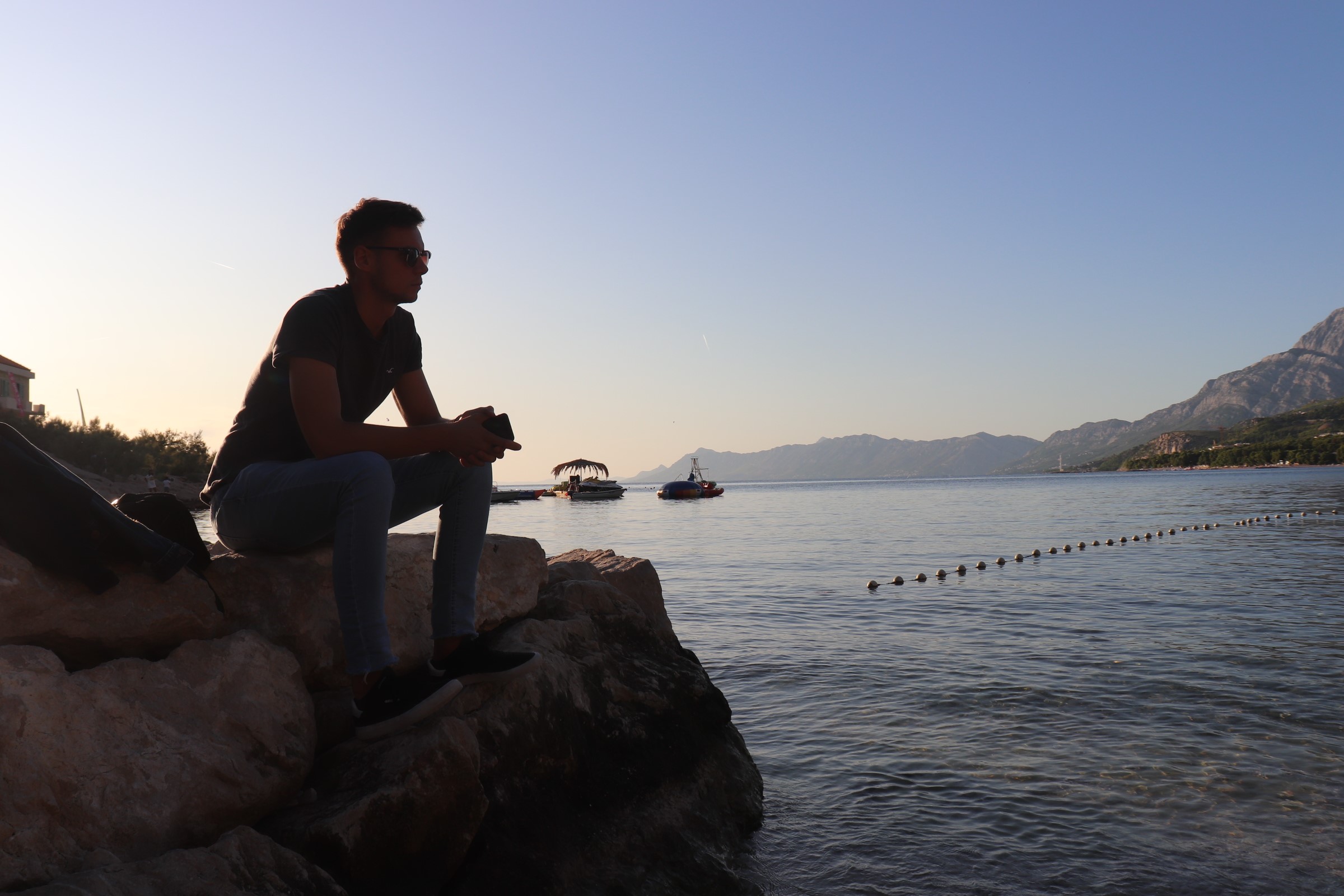
In your opinion, what would encourage young people to stay in Croatia?
Better political order, more legal business, fairer employment, and fairer wages.
Have you ever considered leaving Croatia?
No, I have not.
As a recent graduate, what is your impression of the education system in Croatia? What do you think is good about it and what could improve?
What we need to do better is teach children about their possibilities and what they can become while they are at a younger age. Also, we need to introduce more practical work in schools and faculties.
Based on your own experience, would you say that everything is possible in Croatia if you work hard, work on yourself, are educated and ambitious?
The answer I am giving to this question does not depend on any particular country. I met many hard-working and diligent people who struggle with their careers because of the current situation. I would say that in the end, it all depends on how well you adapt to a particular situation and how many times you fall before you finally succeed.
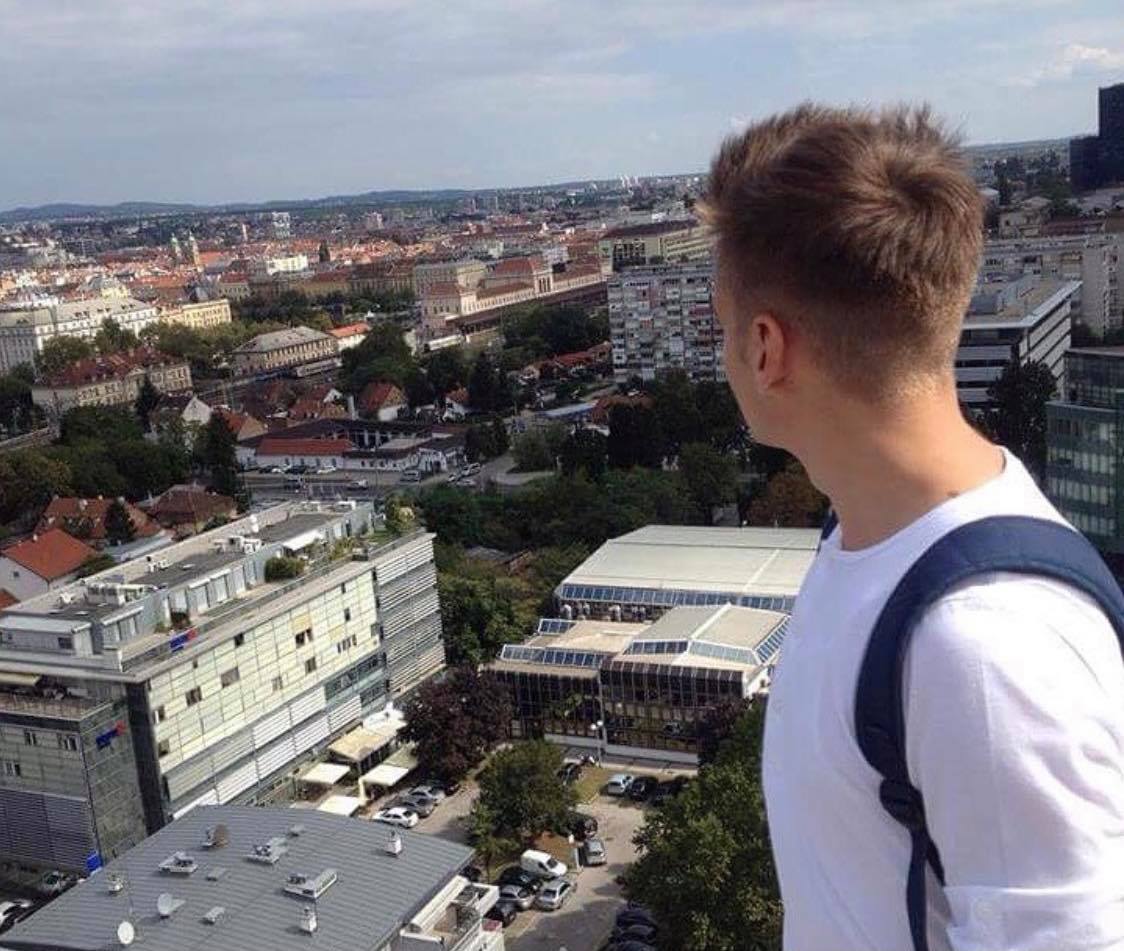
As a young Croatian, what are you most proud of in Croatia?
When foreign people ask me about my country, I cannot resist telling them everything about our beautiful coast, islands, and clear water. After telling them about our cities' great culture, I must end with describing our people who are always cheerful, no matter what.
Are you optimistic or pessimistic about the future of Croatia, and will it be a better or worse place for your children?
As an eternal optimist, I will always believe in bright times. I will always hope that young people will welcome positive change in their lives, and I will always be the first one willing to stand up and work for a brighter future.
Are you a student or recent graduate who would like to contribute your voice and experiences to this series? If yes, please contact This email address is being protected from spambots. You need JavaScript enabled to view it. with the subject "Graduate."
To read more from the Croatian Graduate Perspective series, follow TCN's dedicated page.
Croatian Graduate Perspective: The View from Karla in Split
February 13, 2021 - With many young people emigrating from Croatia, what keeps those who decided to stay (at least for now)? In the new TCN series called Croatian Graduate Perspective, we investigate recent graduates' attitudes about job and life opportunities in Croatia. Karla from Split is our first interviewee. This is her story.
The emigration of young people from Croatia in search of better business opportunities and living standards, unfortunately, is a well-known story. Each of us young people in Croatia knows at least a few people from their environment who, at one point, said that enough was enough and decided to seek happiness somewhere abroad.
According to official Eurostat data, from 2015 to 2019, Croatia's population decreased by 4.26 inhabitants per 1,000 citizens only thanks to emigration. Therefore, the Croatian emigration rate is the second-worst in the European Union (after Lithuania).
These data indicate that economic prosperity influences population decisions to emigrate. Besides, due to the exodus of the young and working population, there is an additional reduction in GDP per capita that closes the cycle of poverty and decline in Croatia.
However, there are many who are aware of the poor position of young people in Croatia, but still do not want to give up and decide to stay in Croatia. We're wondering what do those young people, recent graduates, think about this whole situation and what are their reasons for staying in Croatia.
We begin our series on the Adriatic coast, with Karla in Split.
First of all, please introduce yourself. What are you studying/what did you study? Do you have a job currently?
I'm Karla, and I have a Masters degree in journalism. I live in Split, where I'm originally from. Last year I came back from Zagreb where I had been studying for five years. I'm currently unemployed.
What is it like being a student/recent graduate in Croatia during this coronavirus time?
I honestly don't know which is worse – being a student or completing one's studies during the coronavirus time. In any case, a lot of pressure is in the air, in terms of our own existence, but also the desired career.
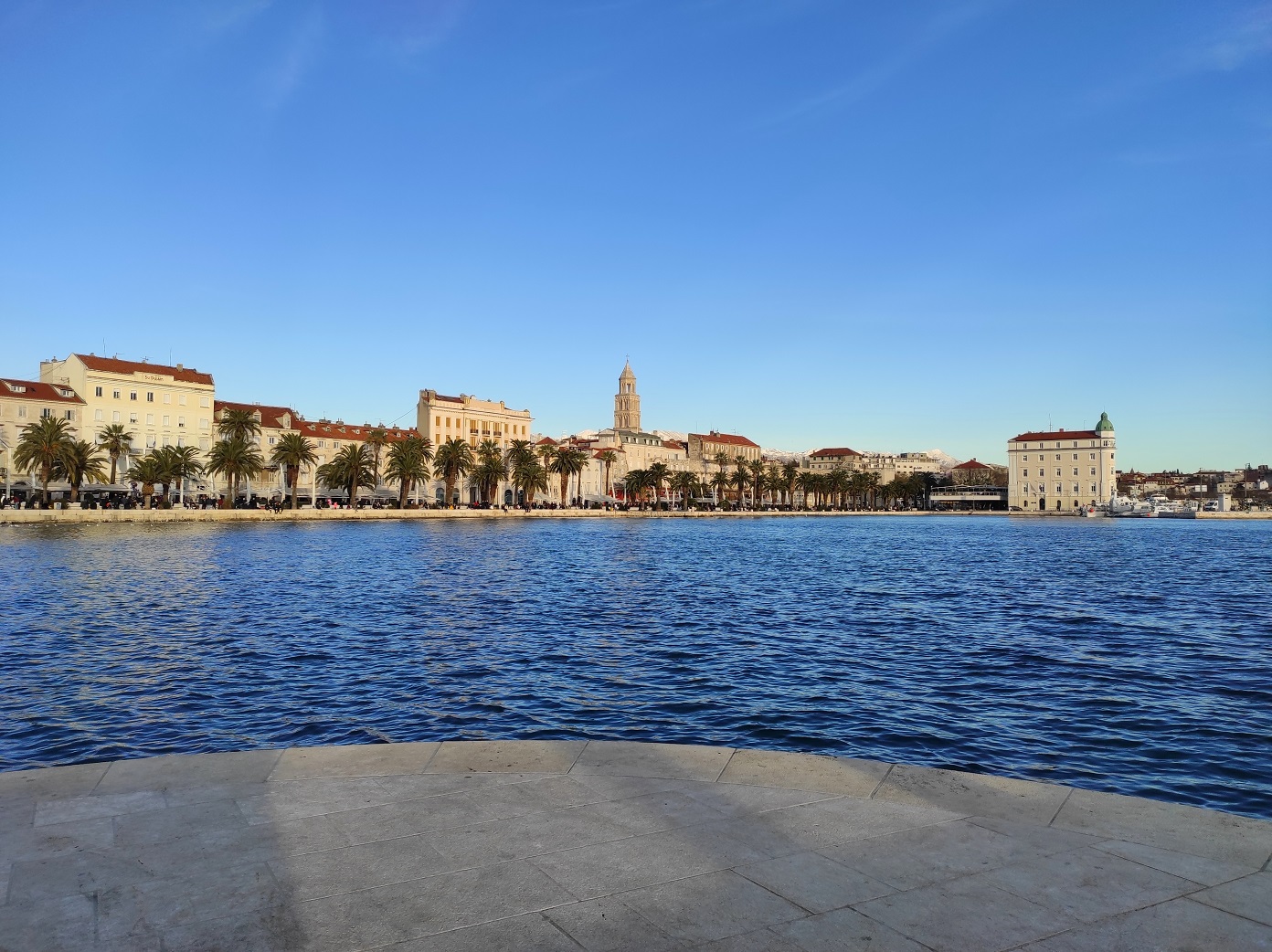
What are your experiences searching for a job in your profession in Croatia?
I honestly think that the ones who want to work can, but the question is what kind of work? If you want to do anything, for a low salary, all Croatian companies' doors are open to you. But if you want to do what you specialize in or something you love, you will have to wait. At least until this coronavirus crisis is over.
What do you think of the Croatian Government's efforts to provide opportunities for graduates?
I think that every ambitious citizen has opportunities. But those who have just graduated have to deal with a lack of experience that will certainly not help them under government grants. And the number one experience you must have in Croatia is printing paper or bureaucratic expertise. The Croatian Government has offered support for self-employment and support for employers in the form of youth employment. It would be nice if young people were educated about their own rights and employment opportunities during their college/high school days.
Many young people your age decide to emigrate from Croatia to find a better job opportunity and/or life standard. What do you think about it?
I support such young people. However, I consider leaving Croatia solely for business a defeat. I do not rush exclusively for money, and the standard of living in Croatia, at least in Dalmatia, where in addition to work and college, we still sit for a few hours having coffee, I consider a comfortable life and luxury. We are in a global world, where, if you are capable and creative, you can profit from anywhere. So why replace the sun and the sea with some continental concrete?

In your opinion, what would encourage young people to stay in Croatia?
Stronger support for purchasing real estate by young people, not only for those who have cash or a secure job for years.
Have you ever considered the option to move out from Croatia?
No, I haven't.
As a recent graduate, what is your impression of the education system in Croatia? What do you think is good about it and what could be better?
We have competent young people who learn a lot during college. But it all stops at the theory stage. Our education would be better if practical experience were always necessary.
Based on your own experience, would you say that everything is possible in Croatia if you work hard, work on yourself, are educated and ambitious?
Hmm, I don't think the state's and individual's characteristics should be so intertwined in one sentence. Yes, I believe it is possible to succeed, but solely because of the characteristics that individual creative minds possess. Ambition and effort alone do not mean much. That is, it means enough that you have a job and how many times you progress in your life. I am ambitious. Almost all my friends are ambitious, but someone just needs to know how to take advantage of the situation, adapt, be different, more unique, and more innovative.
If you could change only one thing in Croatia, what would it be, and why do you think it's important?
I wouldn't change anything! I stick to that you can't change the world – you can only change yourself and your world outlook. I look at Croatia as a combination of sea, mountains, the most delicious food, and tired, complaining, but cheerful and good people.

As a young Croatian, what are you most proud of in Croatia?
I am more than proud of people full of empathy, which is confirmed by numerous humanitarian actions. Just look at the number of donations of each humanitarian action and look at the reactions to crises in Croatia.
Are you optimistic or pessimistic about the future of Croatia, and will it be a better or worse place for your children?
I am generally pessimistic about the future in which new generations are growing up, the online future. I wish I could say that my kids will know all the games I loved as a child. I know that Croatia still offers villages, various green spaces where children can have a childhood, so I am in some way satisfied. If I had children, I would be happy if they live a little with nature and socialize in a playful, childish way.
Are you a student or recent graduate who would like to contribute your voice and experiences to this series? If yes, please contact This email address is being protected from spambots. You need JavaScript enabled to view it. with the subject "Graduate."
To read more from series Croatian Graduate Perspective, follow TCN's dedicated page.


